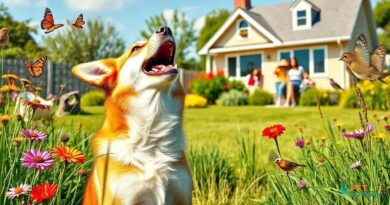What is Vicarious
What is Vicarious?
Vicarious refers to experiencing something indirectly through another person or entity. In the context of dog ownership and care, it often describes the emotional and psychological connection that dog owners feel when they observe their pets engaging in various activities. This phenomenon allows individuals to derive joy, excitement, and even anxiety from their dogs’ experiences, as if they were living those moments themselves.
The Psychology Behind Vicarious Experiences
Understanding the psychology behind vicarious experiences can shed light on why dog owners often feel a deep emotional bond with their pets. When a dog performs a trick, plays with other dogs, or even faces challenges, the owner may experience a rush of emotions that mirror those of their pet. This connection can enhance the owner’s appreciation for their dog’s personality and behavior, creating a stronger bond between them.
Vicarious Learning in Dog Training
Vicarious learning plays a significant role in dog training. Owners often learn effective training techniques by observing how other trainers interact with dogs. This observational learning allows them to adopt successful methods without having to go through the trial and error process themselves. By watching others, dog owners can better understand their pets’ behaviors and needs, leading to more effective training outcomes.
Vicarious Play and Socialization
When dogs play with each other, their owners often experience vicarious joy. Watching dogs engage in playful behavior can evoke feelings of happiness and excitement in their owners. This shared experience not only strengthens the bond between the dog and owner but also enhances the dog’s socialization skills. Owners who encourage their dogs to play with others can witness the benefits of vicarious play as their pets develop confidence and social skills.
Vicarious Emotions and Dog Ownership
Dog ownership is filled with vicarious emotions. Owners often feel pride when their dogs achieve milestones, such as learning a new trick or completing an agility course. Conversely, they may also experience anxiety when their dogs face challenges, such as visiting the vet or encountering unfamiliar situations. These emotional responses highlight the deep connection between dogs and their owners, emphasizing the importance of understanding and supporting each other through various experiences.
Vicarious Experiences in Dog Shows
Dog shows provide a unique opportunity for vicarious experiences. Owners often feel a sense of pride and excitement as they watch their dogs compete, showcasing their training and skills. The atmosphere of competition can evoke a range of emotions, from joy to nervousness, as owners cheer for their pets. This shared experience not only strengthens the bond between the dog and owner but also fosters a sense of community among dog enthusiasts.
Vicarious Grief and Loss
Vicarious grief is another aspect of dog ownership that can profoundly impact owners. When a dog passes away or faces serious health issues, owners may experience grief not only for their pet but also for the loss of the experiences they shared. This emotional response can be intense, as the bond formed through shared experiences is deeply rooted in the owner’s heart. Understanding vicarious grief can help owners navigate their feelings and find support during difficult times.
Vicarious Inspiration from Dog Stories
Many dog owners find inspiration through vicarious experiences shared in stories, books, and films. These narratives often highlight the unique bond between dogs and their owners, showcasing the joys and challenges of dog ownership. By connecting with these stories, owners can reflect on their own experiences, drawing inspiration and motivation to strengthen their relationship with their pets.
Vicarious Benefits of Dog Ownership
The benefits of vicarious experiences in dog ownership extend beyond emotional connections. Studies have shown that owning a dog can lead to improved mental health, increased physical activity, and enhanced social interactions. The joy and fulfillment derived from observing a dog’s life can motivate owners to engage more actively in their own lives, creating a positive feedback loop that benefits both the owner and the pet.



